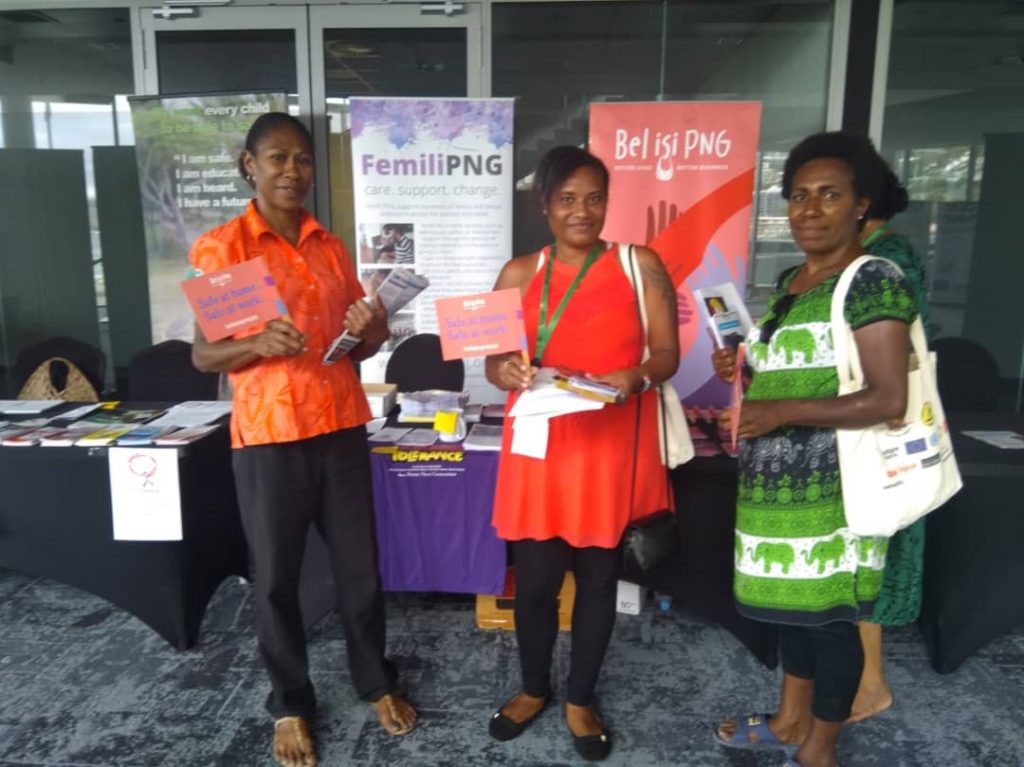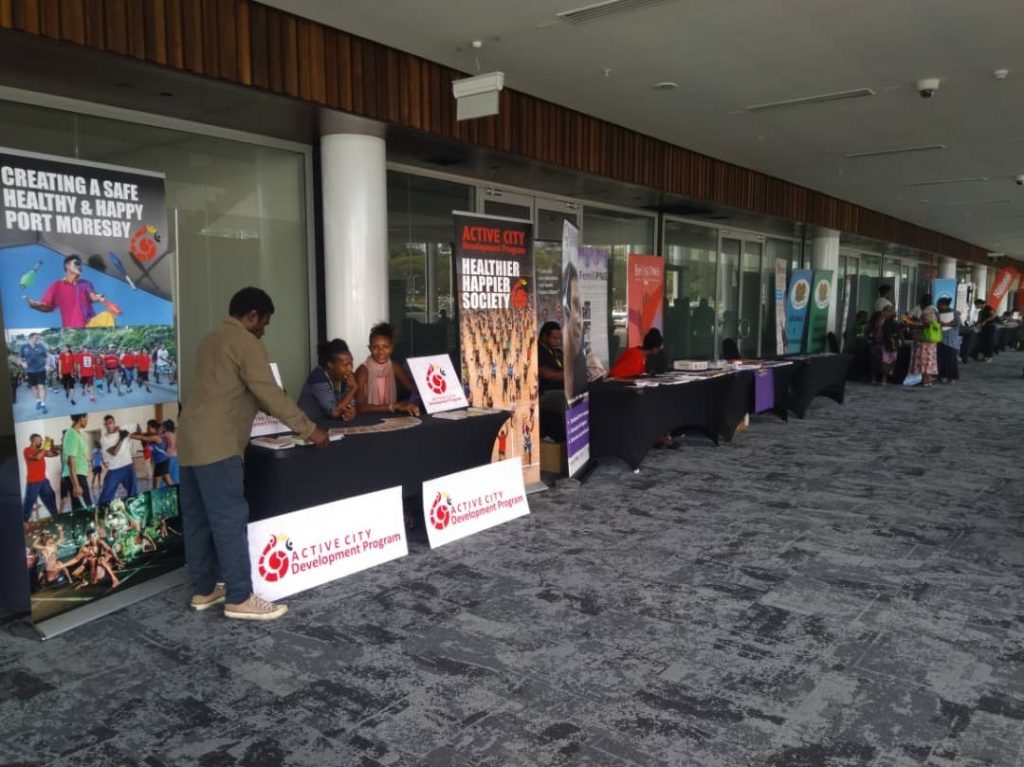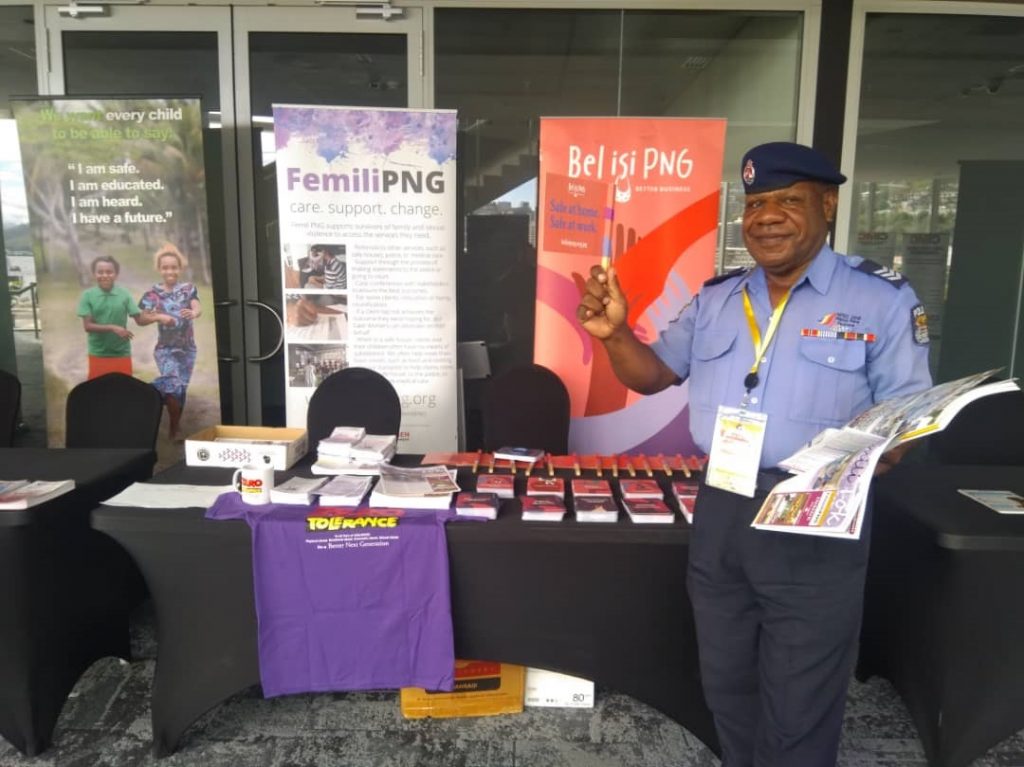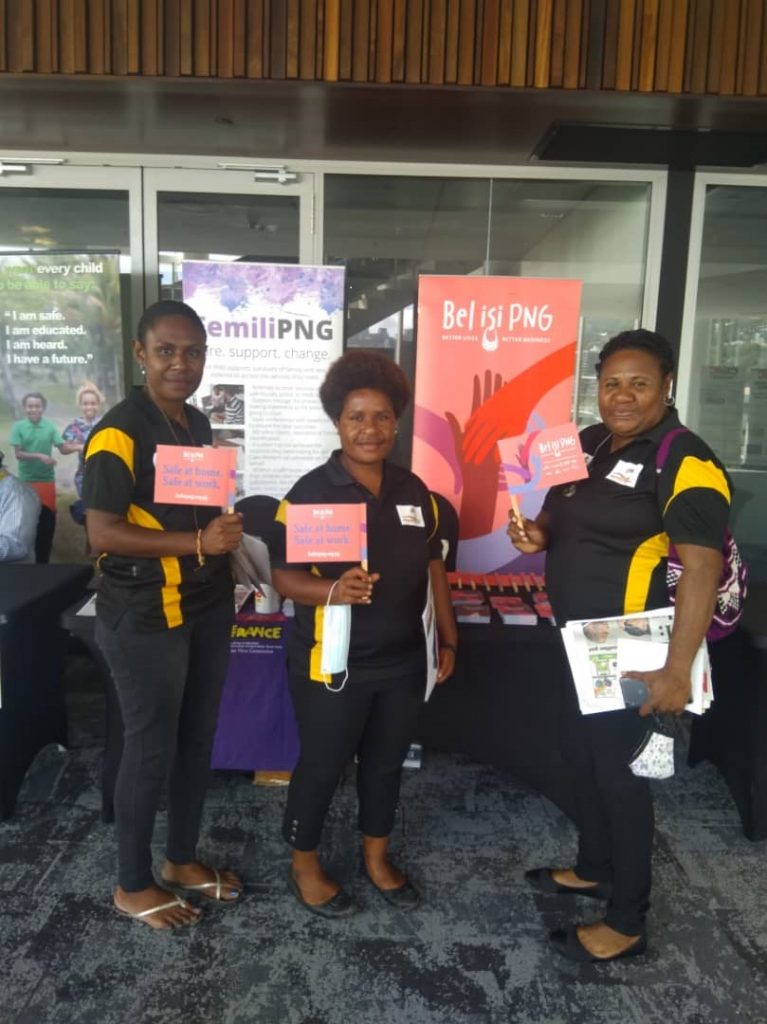The first ever 3-day National Summit on GBV which started on 8th November concluded on a high note at the APEC House in Port Moresby. With the theme, Now is the Time: United for Equality, this inaugural Summit has brought together representatives from the Government, Parliament, civil society, private sector, youth across Papua New Guinea and representatives from the Autonomous Region of Bougainville.
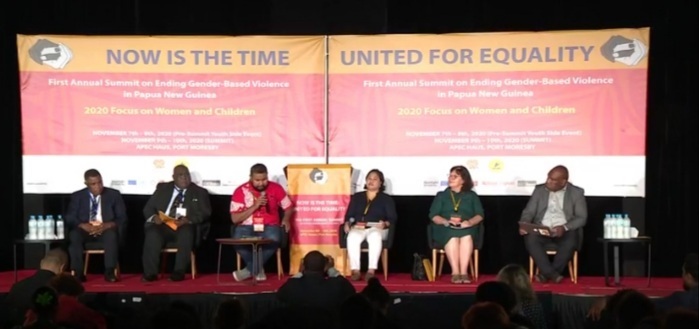
The summit started with an 8 kilometre GBV walk, followed by the Youth side event with a one-day session covering topics on activism, communication, leadership and the parliamentary process. The main summit continued from 9th to 10th November, covering sessions on: 1. Equality: Leading the Change; 2. Walking the Talk and Institutional Change; 3A. The GBV Referral Pathway status, challenges and recommendations; 3B. Prevention Status, Challenges and Recommendations; and 4. The Status of Case Management Systems in PNG.
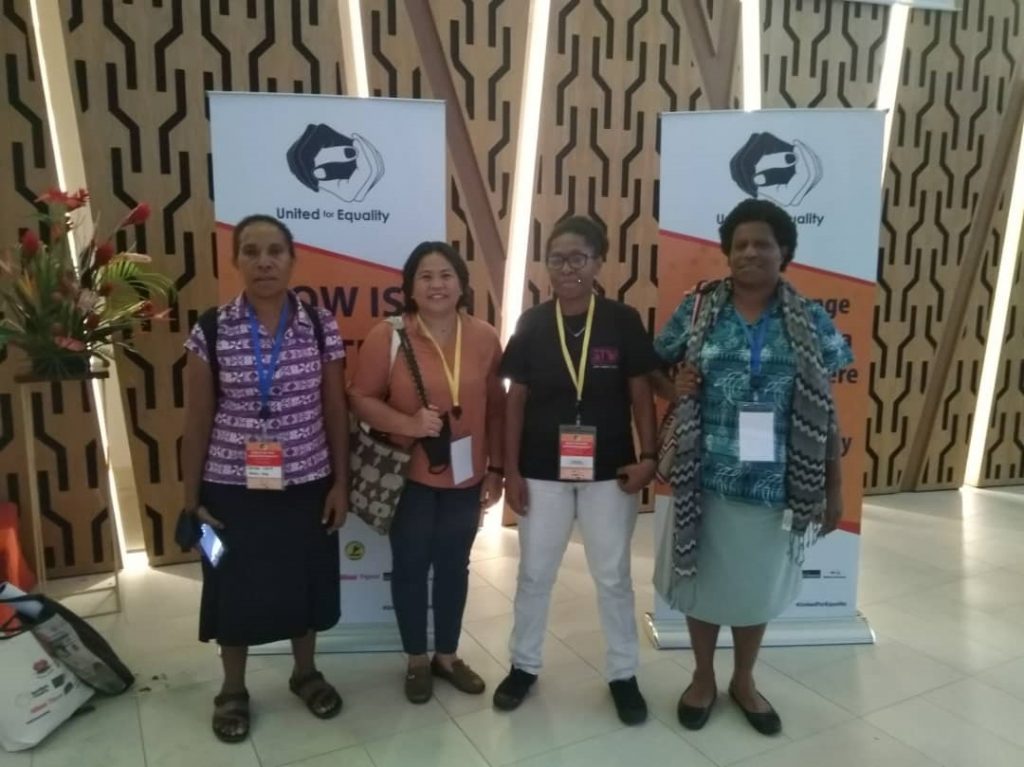
The increased level of violence perpetrated against women was highlighted by NCD Governor and co-chair of the summit, Hon. Powes Parkop, as amongst the highest in the world and that we cannot let this continue. Fellow co-chair and Governor for East Sepik Province, Hon. Allan Bird, stated that this is the first step. He said, ‘’we’ve written many policies about these things, there’s been many papers, many presentations, many reports, but this time, we are going to get some action.’’
Prime Minister Hon. James Marape shared the same sentiments as he expressed in his opening statement that, ‘’it was time to stop talking, and time for action.’’
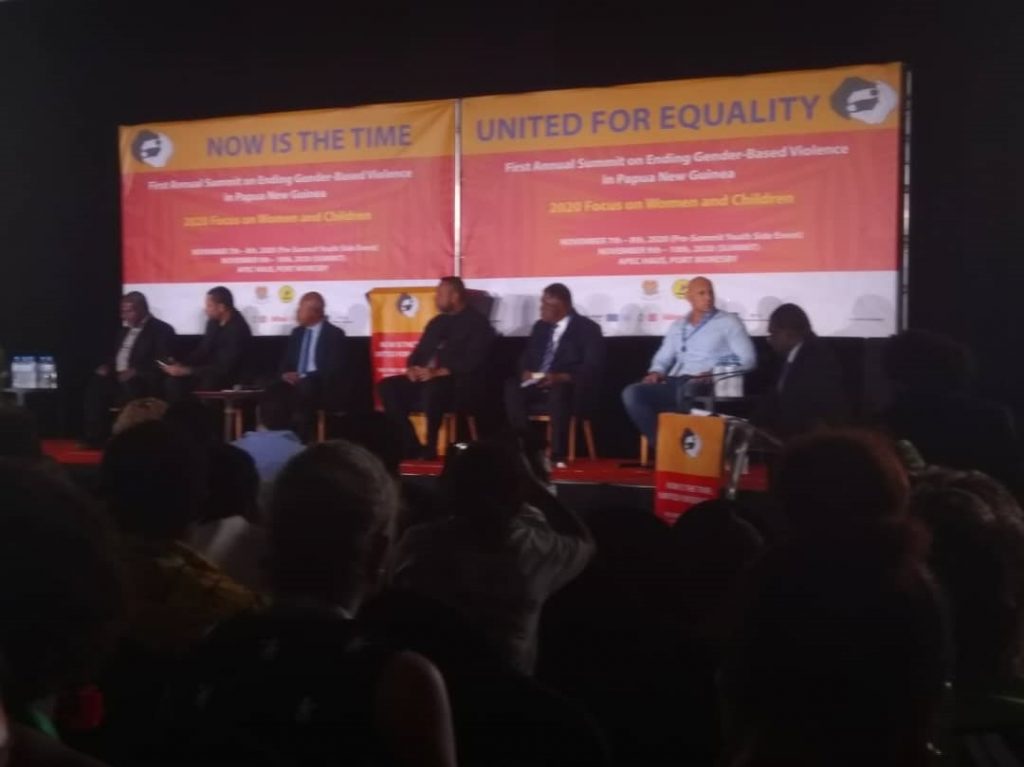
Representatives from government departments, civil society and community were given the opportunity to share and discuss during the sessions.
Femili PNG CEO and Senior Social Worker Daisy Plana participated on the panel to discuss the status of Case Management systems in PNG. Ms. Plana explained the role Case Workers play in regards to a survivor-centered approach response in Case Management and how crucial it is to normalise the survivor at the first instance. She added that the work would be harder when working in isolation, and that close coordination with partners was the key to positive outcomes. She also shared the importance of awareness raising especially in the rural communities and collective shared data from various sources.
As a recommendation to the government, Ms. Plana emphasised that such approach by Femili PNG and also other organisations should be supported by the government because we do not want this work to disappear if donor-funded projects were to end. She concluded saying, ‘’embed this approach into the government and NGOs in different provinces, and support this, fund this. Not only this work but so many NGOs and CBOs in different provinces, they have no resources, they walk, they put themselves at risk, they need support.’’
You can watch Ms. Plana at the GBV National Summit below. She begins at around the 11 minute mark:
Discussions during the Summit considered ways to elevate the status of women, the need for institutional reform, initiatives to increase women’s ’ participation in decision-making bodies, including representation in the national parliament, and how to encourage positive change in social attitudes towards women, gender and empowerment.
Femili PNG also set up a booth with other organisations at the Summit to provide information about its services in Lae and Port Moresby under Bel isi PNG.
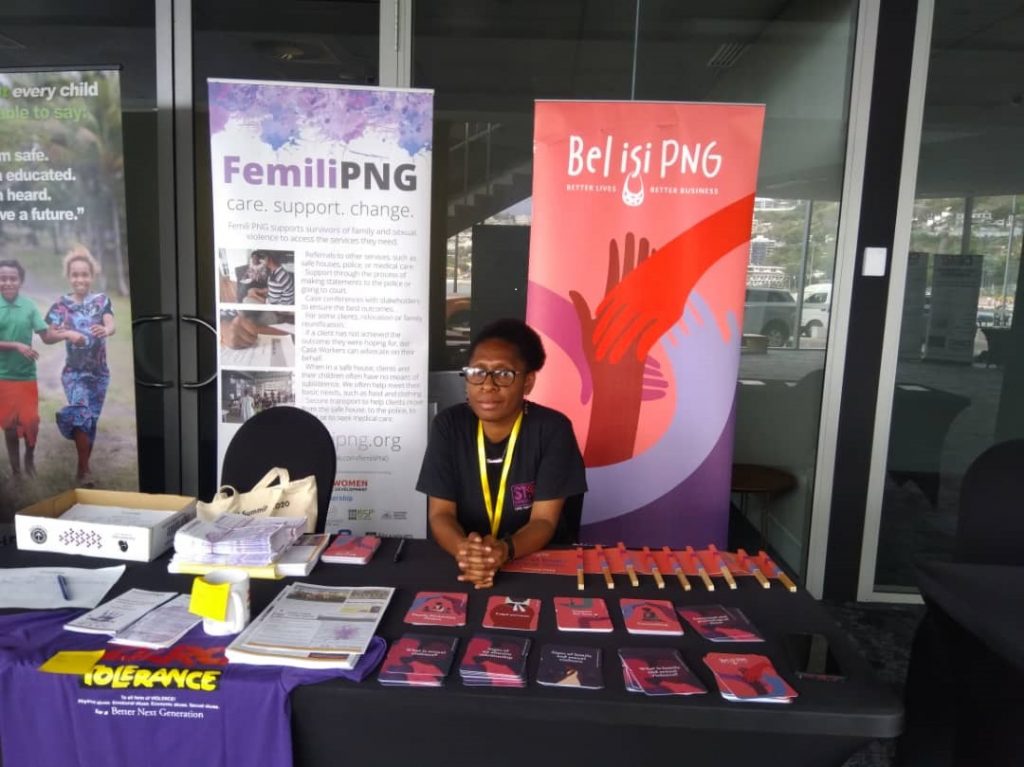
The Summit was hosted by the National Capital District Commission with support from the United Nations through the European Union’s global Spotlight Initiative and the government of Australia.
